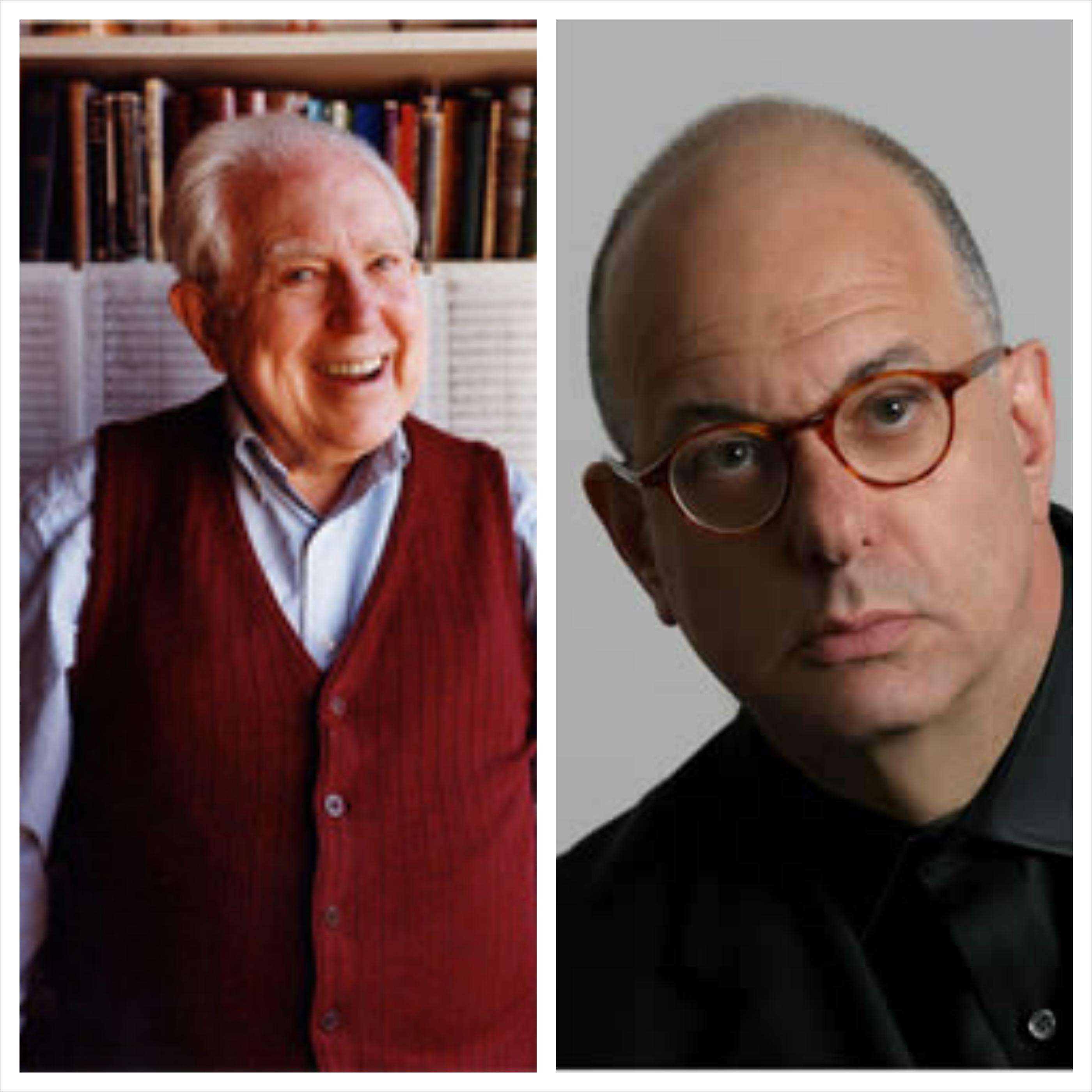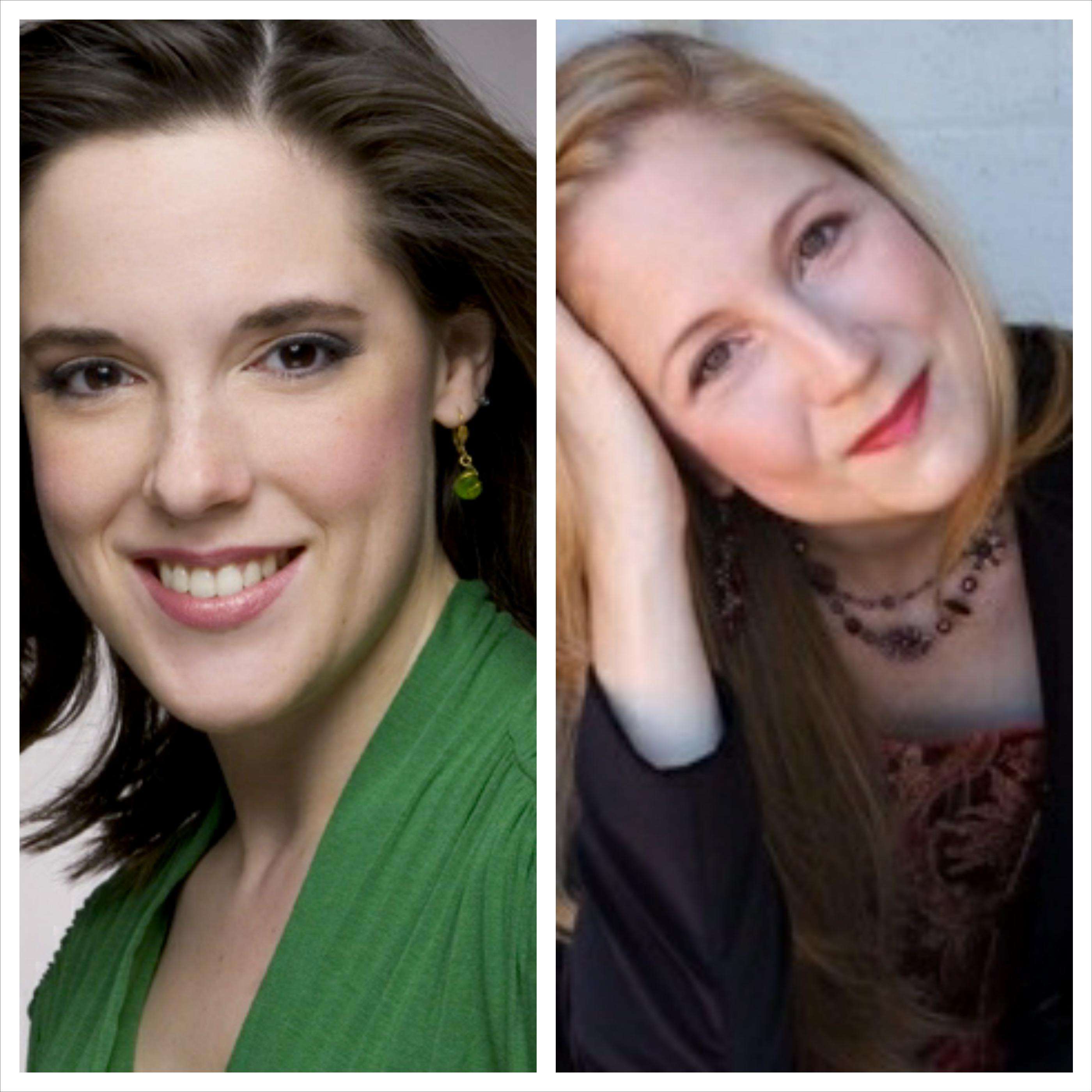|
Back
Learning the Planetary Tongues New York
Isaac Stern Auditorium, Carnegie Hall
11/17/2013 -
Elliott Carter: Suite from Pocahontas – Clarinet Concerto – Sound Fields – Warble for Lilac-Time – Voyage – Concerto for Orchestra
Mary Mackenzie (Soprano), Teresa Buchholz (Mezzo-soprano), Anthony McGill (Clarinet)
American Symphony Orchestra, Leon Botstein (Conductor)

E.Carter/L. Botstein
(© Meredith Heuer:Boosey & Hawkes/Steve J. Sherman)
“I always conceived of composition as an adventure, and every one of my pieces is an adventure in a certain direction,” said Elliott Carter to Bloomberg’s James Tarmy a few months before his death. ”They’re still an adventure.”
As they are to listeners today. In fact, neophyte audiences hearing Elliott Carter placed between, say, Mozart and Copland on a program might be confused by his utterances. It doesn’t matter what he has to say. Carter is speaking a tongue somewhere between Albanian and Swahili, and rare is the person speaking both.
With some composers, say Schoenberg and Messiaen, a description of their “school” or musical idiosyncrasies can offer guideposts for listeners. But Elliott Carter never developed a 12-tone theory and probably never interpolated a birdcall. (Though part of his early Pocahontas suite did use a few imitation birds.)
Like learning a new language, though, one must immerse oneself in the words and tones. So “speaking Carter”, one must hear an entire program of his works, and this is where the fear dissipates. Poisson Rouge did this a year after Carter’s death, where Fred Sherry organized an entire program around his chamber music. What began as an alien language ended with a familiarity, a delight, and a share in the adventure.
Leon Botstein wanted the same experience yesterday afternoon when the American Symphony Orchestra played six Carter works. They each had their wonders and surprises and, yes, adventures. Yet in this case, they were so different from each other that they could have been six different composers. Carter, who vowed never to repeat anything he had done before, would have agreed in principle, though he would never regret the “adventure” of the afternoon.
To those who find him infernally difficult, Mr. Botstein included three pieces which breathed an easiness and a delight together. The suite from his early ballet Pocahontas could have been any “forward” composer of the 1930’s. But unlike, say, Roy Harris or Aaron Copland, Elliott Carter never needed or wanted to interpolate quotes from other music. No Indian chants, no Pilgrim’s choruses, a straight, fairly dissonant ballet score, built with a craftsman’s structure.
The Sound Fields, for string orchestra, was written when the composer was 103 years old, was no self-memorial. Death was not part of Carter’s arcane vocabulary. The entire string orchestra played without vibrato at the same level (pianissimo) just to test out sounds and timbres and experiments in densities and auditory levels. Perhaps a string section from the NY Phil might have given it more impetus, more sheer beauty. The result here was simply Carter having another go at writing. The guy couldn’t help it.

M. Mackenzie/T. Buchholz (©Mary-Mackenzie.com/TeresaBuchholz.com)
The other music which stunned at least this listener yesterday could have come directly out of Mahler’s Song of the Earth. That wonderful soprano Mary Mackenzie sung Walt Whitman’s poem with a clear lyrical awestruck wonder, but her melodic rhapsodic line was less endearing than the orchestral swirls, the riverine string passages, the clarion calls from flutes and clarinet.
Both this and Voyage were written in 1943, but the latter, with words by Hart Crane, was not quite so striking, though sung quite beautifully by mezzo Teresa Bucholz.
Leon Botstein conducted the Clarinet Concerto well enough, but it was the soloist, the Metropolitan Opera First Chair clarinet player, Anthony McGill who had the technique, personality and decisive tone to make his relationship with orchestra and conductor a very spatial one.
This is not a misprint. Two of Elliott Carter’s trademarks were his consanguinity with 20th Century poet, and his experiments with sounds in space. Here, Mr. McGill moved among the widely placed instruments, his clarinet voice reflecting or being reflected upon by colorful consorts. How (Mr. Carter might have mused) would clarinet sound with piano, harp and marimba? Could the player drum up tunes with percussion? Could he, without a mute, play with muted brass or full brass or strings?
Those who tried to follow the lines like an ordinary concerto would get nowhere. Instead, one followed–auditorially and geographically–Mr. McGill’s forays through Mr. Botstein’s orchestra.
All of these pieces spoke the language of Carter, even if the words were of different tongues. The Concerto for Orchestra, though, had it riveted the audience, wouldn’t have been right. The Concerto is meant for constant transformation, for changes of feelings and thoughts. This was my second hearing of the work, and I did spot certain motifs at the start which were repeated toward the end. It was also simpler to catch the different instrumental combinations in each movement, to see where the composer was changing colors, lines, not only pulling us along in a tsunami of music, but–if we allowed it–letting us soar with the winds and waves.
Frankly, I am not expert enough to judge Mr. Botstein’s performance here, and will leave that to Carter experts. He had played the piece for the composer several years ago, and Mr. Carter apparently was satisfied, and that’s good enough for me.
I am still unsure of what he was saying. But listening to it, I was reminded of being in an Iranian village many years ago, where the father of the family recited Iranian poetry. I understood not a word of it. But the mystery and mood of the sounds was enough to move me. And yesterday afternoon, if I did not soar, I was indeed moved close to another dimension of apprehension.
Harry Rolnick
|